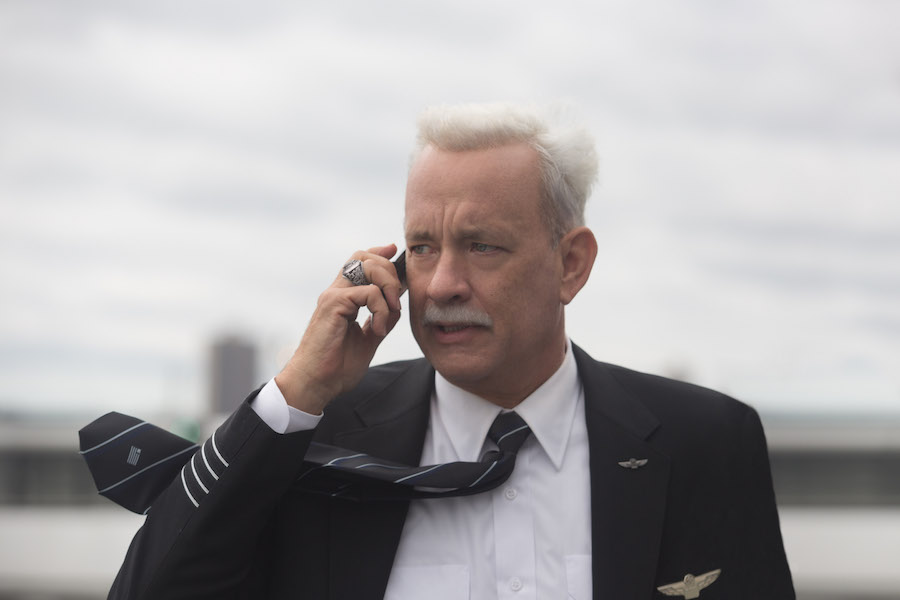‘Sully’ In “Sully,” Clint Eastwood takes a story that barely has enough meat for a short film, let alone a movie, and turns it into a movie. It’s a job well done — improbable yet efficient, if not as much so as the feat perpetrated by the film’s hero, Chesley Sullenberger (played by Tom Hanks). On a cold January NYC morning in 2009, the seasoned, unflappable commercial pilot saved a passenger plane by landing it in the Hudson River. There were no casualties, besides the aircraft and a handful of geese. And the whole ordeal lasted about two minutes — an hour and change if you count the efficient rescue to get the 150 or so on board to dry land. What “Sully” isn’t, though, is simple. The shortest and most compact Eastwood film has ever directed is also arguably the most experimental, using a non-linear structure to both bait us into staying interested and to explore the mind of someone who’d prefer to keep his thoughts to himself. The big event itself, presented as an IMAX spectacular, is wisely held off till the midway mark. The rest follows the investigation by ghoulish airline officials, who suggest Sullenberger and his tetchier co-pilot (Aaron Eckhart and his impressive ’stache) could have maybe flown back to nearby LaGuardia, saving both the plane and the passengers. On the record, Sullenberger stands by his work; in private, he’s not so sure. RELATED: Interview: Laura Linney on “Sully” and why she loves working with Clint Eastwood This could have been padding. Instead it helps “Sully” become a study of how taciturn man’s men — i.e., Eastwood protagonists — aren’t mere macho machines. Someone like Sullenberger — or “Unforgiven”’s Will Munny, or even Dirty Harry — aren’t crying on the inside, per se, but they are wracked with doubt, hobbled by trauma. “Sully” even opens with what looks like the event, only to reveal it’s a nightmare in which they crashed into a Battery Park building. Sullenberger can’t sleep, and he’s deeply uncomfortable when people call him a hero or buy him a vodka cocktail at a rando Midtown Irish bar. He doesn’t want to talk about his feelings, of course, but they’re there. Compared to past Eastwood protagonists, Sullenberger gets off easy. The movie even effectively becomes about someone who gets to scientifically prove what he did was right — closure that eludes almost all of Clint’s characters. But none of his heroes have been as openly anguished. For Sullenberger, even being a good guy is hard work. That we see the plane landing (and variations) multiple times, from different perspectives and via simulations, might seem to just beef up the running time. But it also underlines how Sullenberger spends the movie forced to relive the same event, both in his head and by others, be they well-wishers or nagging naysayers. This is a tight movie, with the rare fascinating courtroom climax and only one minor design flaw (brief flashbacks to his youth that seem to serve no purpose). Moreover, it helps further complicate the public persona of its maker, a figure who can say supportive things about Trump and make something as thoughtful as “Sully.” And it’s a movie that unlocks other Eastwood movies, showing them all to be nuanced studies of tormented masculinity — yes, even “American Sniper.”
Director: Clint Eastwood
Stars: Tom Hanks, Aaron Eckhart
Rating: PG-13
4 (out of 5) Globes
‘Sully’ is one of Clint Eastwood’s best looks at tortured masculinity

Warner Bros. Pictures
Follow Matt Prigge on Twitter @mattprigge


















